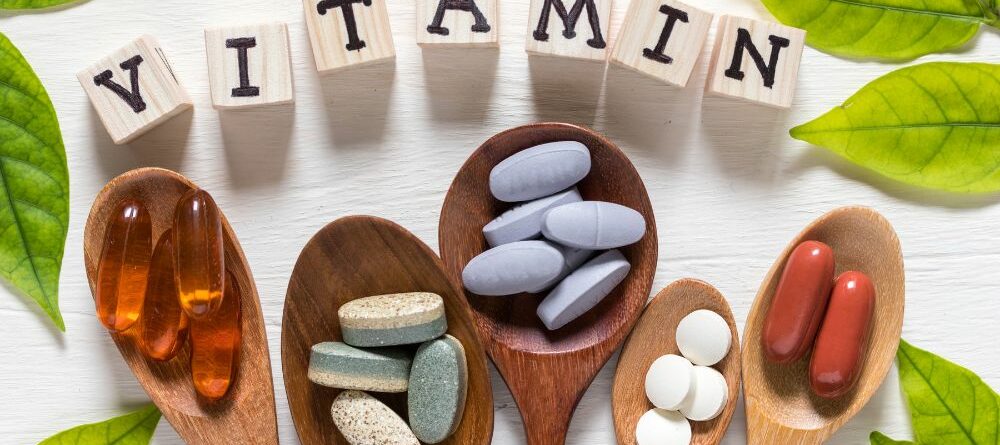5 Essential Vitamins You’re Probably Missing Out On
Our busy schedules make it very easy to overlook the small things, especially when it comes to our diet. We often focus on macronutrients like carbs, proteins, and fats, but what about the essential vitamins and minerals our bodies crave?
These micronutrients play crucial roles in our overall health, yet many of us miss out on them without realizing it. Let’s talk about five essential vitamins and minerals you might not get enough of: Vitamin D, magnesium, iron, Vitamin B12, and omega-3 fatty acids.
Vitamin D: The Sunshine Vitamin
Vitamin D is unique because your body can produce it when your skin is exposed to sunlight. However, with more time spent indoors and sunscreen use (important for other health reasons), many people don’t get enough. Vitamin D is crucial for bone health and immune function and has been linked to mood regulation.
- Sources: Besides sunlight, you can find Vitamin D in fatty fish like salmon and mackerel, egg yolks, and fortified foods like milk and orange juice.
- Tip: Try to spend 10-15 minutes in the sun a few times a week (with appropriate skin protection) and include Vitamin D-rich foods in your diet.
Magnesium: The Overlooked Mineral
Magnesium supports over 300 biochemical reactions, including muscle and nerve function, blood glucose control, and blood pressure regulation. Despite its importance, many adults don’t meet the recommended daily intake.
- Sources: You can boost your magnesium intake by eating green leafy vegetables, nuts, seeds, whole grains, and legumes.
- Tip: Snack on a handful of almonds or add a serving of spinach to your meals to up your magnesium levels.
Iron: Essential for Energy
Iron is vital for producing hemoglobin, a protein in red blood cells that carries oxygen from your lungs to the rest of your body. Without enough iron, you can feel tired and weak. Iron deficiency is one of the most common nutrient deficiencies, especially among women.
- Sources: There are two types of iron in foods: heme iron (found in animal products) and non-heme iron (found in plants). Heme iron, which is more easily absorbed by the body, can be found in red meat, poultry, and fish. Non-heme iron sources include lentils, beans, fortified cereals, and spinach.
- Tip: To enhance iron absorption, pair non-heme iron sources with Vitamin C-rich foods like oranges, strawberries, or bell peppers.
Vitamin B12: A Key Player in Brain Health
Vitamin B12 is essential for nerve tissue health, brain function, and the production of red blood cells. It’s naturally found in animal products, which means vegetarians and vegans are at a higher risk of deficiency.
- Sources: To ensure you’re getting enough B12, include foods like meat, fish, poultry, eggs, and dairy in your diet. For those on a plant-based diet, look for fortified foods or consider a B12 supplement.
- Tip: Breakfast cereals are often fortified with B12, making them a good option for vegetarians and vegans.
Omega-3 Fatty Acids: The Brain-Boosting Fat
Omega-3 fatty acids are essential fats that your body can’t make alone. They play a crucial role in brain health and have been linked to a lower risk of heart disease.
- Sources: Fatty fish like salmon, mackerel, and sardines are excellent sources of omega-3s. Flaxseeds, chia seeds, and walnuts are good plant-based sources for vegetarians or those who don’t eat fish.
- Tip: Aim to include fatty fish in your meals twice a week or sprinkle ground flaxseeds over your yogurt or salad.
Adding these essential vitamins and minerals into your diet doesn’t have to be complicated. With a little planning and some simple dietary tweaks, you can ensure your body gets what it needs to thrive.
Remember, a varied diet rich in fruits, vegetables, whole grains, lean proteins, and healthy fats is the best way to meet your nutritional needs.
Are you curious about other important nutrients your body needs? Understanding micronutrients and their role in your health is key to optimizing your diet for overall well-being.
Learn more about micronutrients and why they deserve your attention, ensuring you’re not just eating to fill up but to nourish your body.











